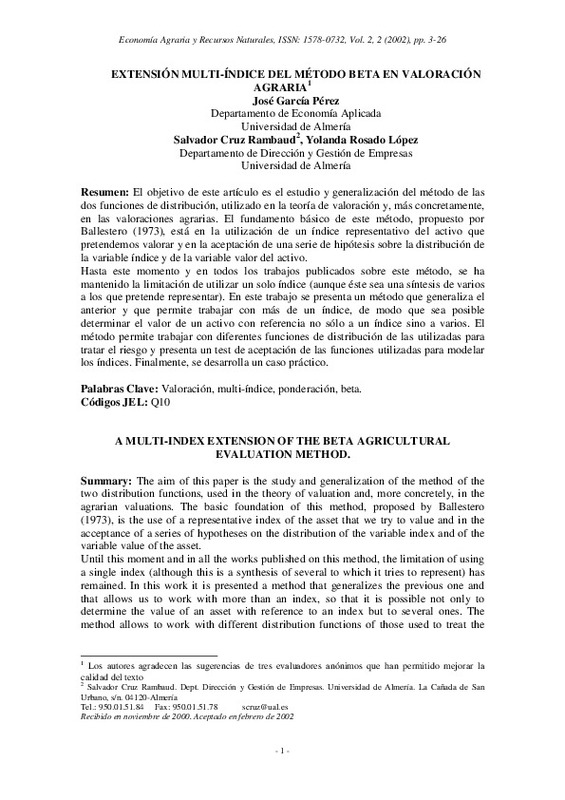JavaScript is disabled for your browser. Some features of this site may not work without it.
Buscar en RiuNet
Listar
Mi cuenta
Estadísticas
Ayuda RiuNet
Admin. UPV
A multi-index extension of the beta agricultural evaluation method
Mostrar el registro completo del ítem
Garcia Perez, J.; Cruz Rambaud, S. (2002). A multi-index extension of the beta agricultural evaluation method. Economía Agraria y Recursos Naturales - Agricultural and Resource Economics. 2(2):3-26. https://doi.org/10.7201/earn.2002.02.01
Por favor, use este identificador para citar o enlazar este ítem: http://hdl.handle.net/10251/109902
Ficheros en el ítem
Metadatos del ítem
| Título: | A multi-index extension of the beta agricultural evaluation method | |
| Otro titulo: |
|
|
| Autor: | Garcia Perez, Jose Cruz Rambaud, Salvador | |
| Fecha difusión: |
|
|
| Resumen: |
[EN] The aim of this paper is the study and generalization of the method of the two distribution functions, used in the theory of valuation and, more concretely, in the agrarian valuations. The basic foundation of this ...[+]
[ES] El objetivo de este artículo es el estudio y generalización del método de las dos funciones de distribución, utilizado en la teoría de valoración y, más concretamente, en las valoraciones agrarias. El fundamento básico ...[+]
|
|
| Palabras clave: |
|
|
| Derechos de uso: | Reserva de todos los derechos | |
| Fuente: |
|
|
| DOI: |
|
|
| Editorial: |
|
|
| Versión del editor: | https://doi.org/10.7201/earn.2002.02.01 | |
| Tipo: |
|








